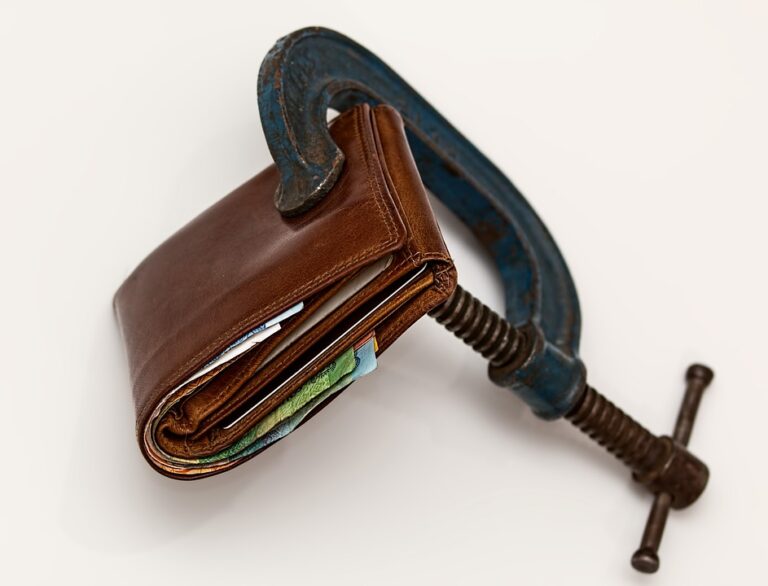Last updated Aug. 13, 2023 by Benedict Osas
Steps to Financial independence include investments, enough savings, and cash to afford the lifestyle you desire for yourself and your family. With this, you can grow a nest egg that’ll allow you to retire or pursue the career of your choice—without being driven by the need to make a certain amount each year.
That means being financially independent involves making life decisions without worrying about the financial blowback of those decisions. It is being financially prepared for whatever life throws at you—by this, you’re ready to retire comfortably early.
I’ll take you through fifteen steps to help you in your journey to becoming financially stable.
Steps You Should Take Towards Financial Independence
Here are the 15 steps to financial independence. These steps will ensure you attain financial freedom and live a decent lifestyle.
#1. Set Financial Goals
Every successful thing in life starts with careful planning, your finances notwithstanding. Therefore, setting your financial goals is the first step to financial independence. In developing your goal, you must be specific about amounts and deadlines. The more detailed your goals, the more the likelihood of achieving them.
For instance, how much mortgage do you plan to pay off? Is it $15,000? Great, now we’re getting somewhere! When do you plan to be loan-free? Can you achieve it in 12 months? Placing an amount and a deadline will help you to be intentional about achieving your goals.
Write all amounts and deadlines about your financial plan down carefully and put every goal sheet at the front of your financial binder. Then ensure you follow and meet every goal depending on the amount or deadline. And before you know it, you’ll have achieved your goals quickly.
#2. Develop A Budgeting Habit
Budgeting is the best way to keep an account and track where your money is going. Moreover, it’s the best way to guarantee that all expenses are catered for, and savings are on track. Additionally, it’s a routine that reinforces and bolsters your goals to resolve against the temptation to splurge.
Budgeting is also important in getting your finances on the right track, although it doesn’t end there. You’ll still need to create a unique monthly budget once you achieve financial independence. Regardless of the amount of money you earn, you need a plan. With a budget, you can archive your short and long-term goals.
#3. Eliminate All Forms Of Debt
Debt is like a log tied to your leg, pulling you back each time you try to advance. Therefore, getting debt out of your life for good has become necessary if you want to attain financial independence. So if you have debt like student loans, credit cards, or car loans, it’s time to deal with them and be free!
Besides, living debt-free will allow you to focus on developing your finances with habits such as saving. To eliminate debt, make it a priority to pay off the full balance monthly. Mortgages, student loans, and similar loans generally have much lower interest rates, so paying them off is not an emergency.
Notwithstanding, it’s important to start paying these lower-interest loans on time. Moreover, on-time payments will produce a good credit rating. And after settling all your debts, try as much as possible to avoid them in the future.
#4. Start Saving Now
Your dream to retire early will only come to fruition if you have enough money in your savings account. Therefore, it’s good to start saving now for your future! You can start saving monthly or weekly, depending on your earnings.
You can also enroll in your employer’s retirement plan and leverage any matching contribution benefit, free money. It’s also great to place an automatic withdrawal into an emergency fund that you can tap from for unexpected expenses. Additionally, you can start an automatic contribution to an effective brokerage account or otherwise.
Ideally, the money for the retirement and emergency funds should be debited from your bank account the same day you get it. However, you need to save only the amount you’re comfortable with, but considerably too.
#5. Become An Investor
Investing isn’t meant for specific professions or businesses. Anyone can invest, and now is a great time of your life to start investing for your retirement. Do not be discouraged by reports of bad markets or the risks attached to investing. Start now, and leverage investment opportunities to build your finances.
However, if you’re still unsure or don’t know how to go about it, you can partner with a financial advisor; who can assist you with your long-term investment options.
One of the ways is to take advantage of the tax-favored retirement accounts at work, like your 401(k) or 403(b). You can invest about 15% of your income toward retirement, and remember to take offers on contributions that match your 401(k) by your employer.
#6. Live Below Your Means
This step takes many sacrifices, but it’s worth it! Living below your means simply means you have to live on less than you make. In addition, it means you must do away with impulse buying, unnecessary spending, and buying expensive items.
To acclaim financial freedom, you need to have a level of self-discipline and always be willing to say no to some things you can’t afford to buy right now; this will enable you to save more in the long run.
Remember you’re in to impress anyone rather than meet your personal goals. So never let those with expensive stuff intimidate you; just remain focused and know your worth. And you’ll be financially free in no time—Living a life you can afford.
#7. Invest In Financial Education
Even as a degree holder in a finance-related field, you still need to keep updating yourself on financial-related matters. It’s said that learning never ends, and those who constantly seek knowledge grow in line with the latest global trend.
Therefore, updating yourself with the latest financial trend is necessary for living with financial independence. You can start by reviewing relevant tax law changes to ensure all adjustments and deductions are maximized yearly.
Additionally, keep up with the latest financial news and developments in the stock market, and never hesitate to adjust your investment portfolio accordingly.
Knowledge is also a good weapon for defense against fraudsters looking to prey on unsophisticated people to turn a quick buck. You can read books on financial freedom and development, taxes, and loan repayments to get the best knowledge. Attending finance-related seminars is also a great idea.
#8. Get a Financial Advisor
Living with financial independence to retire early is a serious issue that requires a financial advisor. You need their services to know the best investment platforms and guidance on tax payments, savings, and other related financial matters.
Once you’ve reached a point where you’ve amassed a considerable amount of wealth—either liquid or fixed assets—hire a financial advisor to guide you in staying on the right path.
#9. Pay Off Your Mortgage Early
As the intro mentions, being financially independent means living a comfortable life. Paying your mortgage is necessary for early retirement without worrying about lingering debt. It is little wonder the average millionaire pays off their mortgage in about ten years.
Besides, living in a house you know you own will give you peace of mind like no other. Clearing the mortgage earlier will also help you focus on other areas of developing your finances. Then you won’t need to worry about the amount to invest and how much to save monthly.
Spending an extra mortgage quarterly could help you pay off your house even ahead of schedule. Moreover, it’ll save you tens of thousands of interest payments.
#10. Get the Right Insurance
The goal of living with financial freedom would be easier to achieve with the right insurance in place. It would help if you were prepared for anything; insurance can cover unforeseen circumstances. And your goal to retire early with financial independence wouldn’t be affected as much as without insurance.
Some of the right insurance to invest in today include Term life insurance, auto insurance, homeowners/renters insurance, and health insurance. Others include:
- Long-term disability insurance.
- Long-term care insurance.
- Identity theft protection.
- Umbrella policy.
So while budgeting, investing, and saving will help you reach financial independence, insurance enables you to stay there.
#11. Monitor Your Credit Score
Your credit score is essential to determining the interest rate you’re offered when refinancing a home or buying a new car. It also affects the amount you pay for various other essentials, from life insurance to car insurance premiums.
Credit scores have so much impact because someone with reckless financial habits is believed to be irresponsible in other aspects of life, such as taking care of their health—or even drinking and driving.
That is why getting your credit report at regular intervals is important to ensure that no erroneous black marks are damaging your good name. Hiring a reputable credit monitoring service to protect your information may also be worth hiring.
#12. Seek Passive Sources Of Income
It’s not smart to rely solely on your paycheck or a single earning source to achieve financial independence. Having a passive source of income is an excellent way to go.
You can look for the opportunity that suits your schedule and work towards maximizing more income that you could invest or save. In essence, only start your journey to financial freedom if you’ve got significant investments and passive sources of income.
Know that life is typically expensive. Raising kids is expensive, too. So follow a passion that leads to earning more income if you plan to ditch the professional path anytime soon.
It is a great time to start a business, too. You will need an extra source of income, and there’re many paths to choose from—not just the usual corporate or professional path.
#13. Track Your Spending
Do not allow matters such as your spending to go without accountability. It is a crucial step to achieving financial independence. Whether this is student loans, food, bills, entertainment, etc., you should track all your spending methodically.
Moreover, this is an important aspect of budgeting, as it helps you to account for every purchase. Luckily, some free financial tools and apps help you track your spending.
For this purpose, you can use Personal Capital or Mint.com to automate your expense tracking. These tools also track and monitor your credit score while simplifying your financial life. Of course, you could also try the traditional method of writing down all your expenses daily and ensuring you’re sticking to your monthly budget.
#14. Improve On Your Career
Working on your income streams, keeping your spending levels constant, and saving are the fastest ways to reach financial freedom. However, this requires you to improve your career or business continuously.
For instance, your career and income can ascend faster when you start learning new and valuable skills while increasing your worth to your employer. However, if you are self-employed, you’ll need to work on growth strategies that help your business to keep moving to the next level.
So if you’ve been leaving your career progression to chance, now is probably a good time to change your mindset and accelerate your career process. And in turn, your income levels will increase and take you closer to financial independence.
#15. Make Your Health a Priority
Above all the above steps, your health is the most crucial factor to consider. Moreover, how do you intend to enjoy your financial independence without health? So while you’re working hard to attain financial freedom, work on staying healthy.
Poor health could cost your financial freedom if you do nothing to fix it. That’s because more health problems translate to frequent doctor visits and medical bills, leading to more pending and higher insurance premiums.
Investing in good health isn’t difficult or expensive. It’s simply making regular visits to doctors and dentists for checkups and following health advice on any problems you encounter. On the other hand, many medical issues can even be prevented with basic lifestyle changes, such as regular exercise and a healthier diet.
Frequently Asked Questions related to 15 Steps to Financial Independence (How to Retire Early)
What are the 5 Steps to Financial Freedom?
The five most important steps to attain financial freedom include;
- Plan your financial goals.
- Create an emergency savings fund.
- Pay down credit cards and other debt.
- Start investing.
- Create and maintain a workable budget.
Achieving some of these may take months, but it’ll lead you to financial independence, which is also essential for early retirement.
How Long Does it Take to Be Financially Independent?
Reaching financial independence can take longer for some than for others. Typically, it depends on your lifestyle and needs.
For example, if you need to pay for graduate school or college, you may consider staying home to save money. In this case, financial independence is only a few years away.
However, attaining financial independence in an ideal situation may take 5-10 years. Again, it all boils down to your spending habits and financial goals.
What Are The Four 4 Pillars of Personal Finance?
The four pillars of personal finance are assets and savings, debts and liabilities, and income and expenses. When all four pillars work together, your financial goal will be achievable.
These four pillars provide individuals and couples with a working framework for managing money. This framework can fit any lifestyle, budget, investments, income level, credit card debt, and overall wealth.
What Are The 5 Foundations of Saving?
The Five Foundations of Saving are the basic steps every student should take to adulthood with financial confidence. The five foundations include:
- Start a $500 emergency fund.
- Get out of debt.
- Pay cash for your car.
- Pay some money for college.
- Build wealth, and lastly, give.
These five foundations are an idea finance expert Dave Ramsey set up to make it easier for us to save more money.
What Are 3 Personal Finance Strategies?
The three personal finance strategies include budgeting, creating an emergency fund, and paying off debt. There are also retirement savings, using credit cards wisely, and much more. However, implementing these strategies requires a high level of discipline but is, nonetheless, worthwhile.
At What Age Do People Become Financially Stable?
On average, financial experts suggest that an individual should be financially stable at 31. Also, working towards financial freedom should start from the age of 22. With this, you can retire early and with a good credit score.
What is the Fastest Way to Attain Financial Independence?
The fastest way to achieving financial independence, according to experts, is by acquiring a decent-paying job. With a high-paying job, you can settle all your debt, fund your budget adequately, and save for the future. Having a side hustle or extra job has also become necessary. Although it generally takes time to reach financial independence, a high-paying job or profitable business will help.







